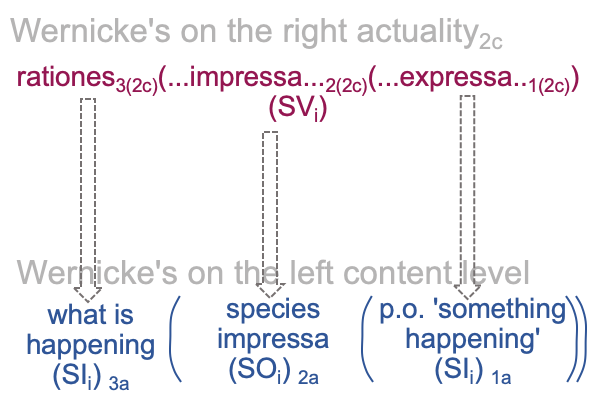0360 The perspective-level actuality2c of the scholastic interscope for how humans think contains judgment2c. Judgment2c is a triadic relation.
Here is a picture, using Latin (if not, then “Latin sounding”) terms.
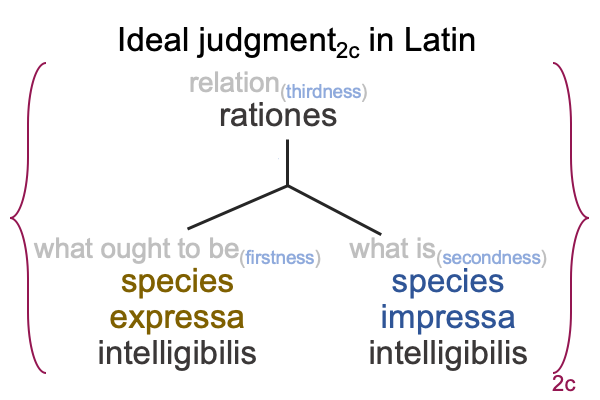
0361 The medieval scholastics never ideate judgment as a triadic relation.
However, they provide all the material for the above figure.
0362 Does their subjective consciousness somehow prevent them from listening to what their bicameral minds are trying to tell them?
0363 Take a look at the Latin-sounding term for relation (thirdness). The actual Latin word is more like “ratio”, which technically means “proportion”, presents “balance” and preaches “the golden mean”. Doesn’t that sound, to the English speaker, like what one expects from the spoken word, “rationes”?
To the English speaker, the Latin-sounding term, “rationes”, captures the essence of the Latin term for “ratio” through an alternate esse_ce. The matter may be different, but the form is similar.
0364 Here is another item to notice. The Latin qualifier, “intelligibilis”, is applied to both the what ought to be(firstness) and what is (secondness). The term has (3) the meaning of belonging to the intellect, rather than to the world, (2) the presence of intelligence, and (1) the message that the term derives from, but is not the same as, what is being qualified. The term applies to rational beings, not real beings.
Today, moderns attach distinct qualifiers. The qualifier, “intelligibility”, goes with the phantasm2b and the qualifier, “universality”, goes with the decode-triggered impression2a. Modern qualifiers modify the Latin adjective, “intelligibilis”, in such a fashion as to suggest that the question has changed. Scholastics work with the distinction between ens reale (mind-independent being) and ens rationes (mind-dependent being). Modern psychologists treat mind-dependent being as if it is um… mind-independent.
0365 This tells me that the medieval scholastics make great strides in delineating how humans think, but that is not their interest, as much as finding the truth amidst all the bullshit. Oh, I mean to say, they seek to understand ens reale, rather than ens rationis, because they know that subjective consciousness (ens rationis) is… well… all about opinion, rather than reality.
0366 So, the questions that medieval scholastics pursue are not the same as the questions that modern academics pursue, but the latter can learn from the former.
0367 How so?
Judgment2c unfolds into commitment2c.
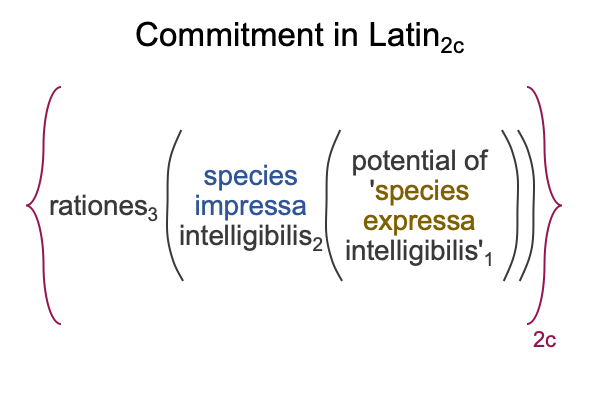
0368 Commitment2c is the perspective-level actuality2c of the scholastic interscope for how people think.
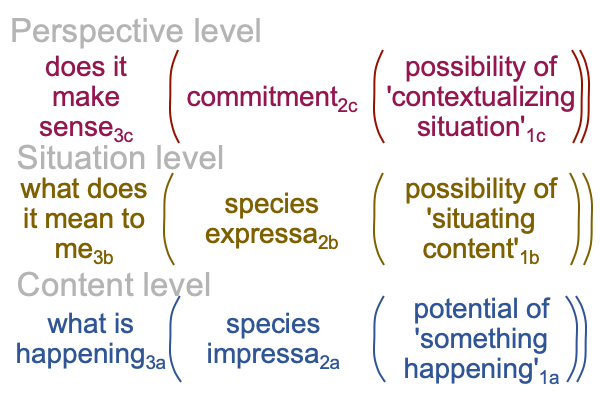
0369 Plus, I must not fail to mention the interventional sign-relation.
Commitment2c (SVi) stands for species impressa2a (SOi) in regards to the normal context of what is happening3aoperating on the potential of ‘something happening’1a (SIi).
Indeed, commitment2c (SVi) as a category-based nested form allows the following depiction.
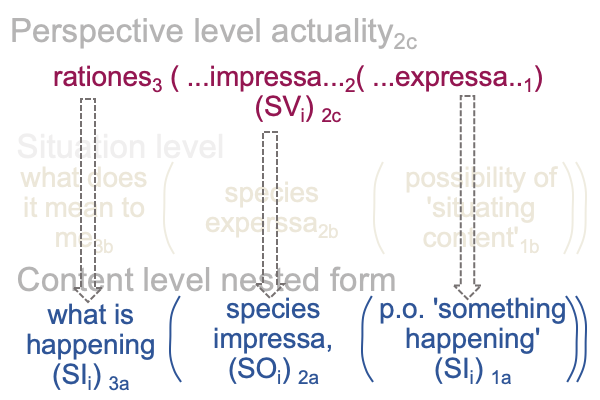
0370 And finally, the following figure aligns with Jaynes’s discussion of the double brain… er… bicameral mind.
